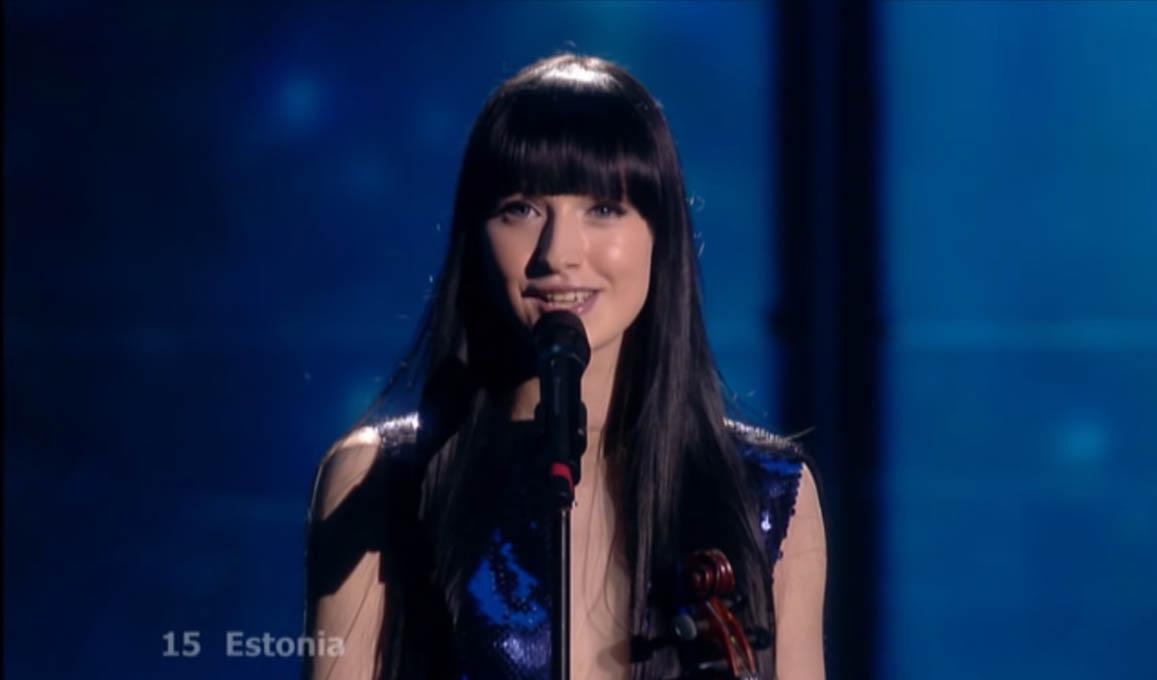
The Estonian national broadcaster ERR has confirmed participation in Eurovision 2026, hosted in Vienna, Austria, alongside the launch of the national final selection process, “Eesti Laul 2026”.
Estonia’s national broadcaster ERR has confirmed that the country will participate in Eurovision 2026, to be held in Vienna, Austria. Estonia becomes the 26th country to express interest in joining Eurovision 2026, following Albania, Australia, Azerbaijan, Cyprus, Czechia, Denmark, Finland, France, Germany, Greece, Israel, Italy, Latvia, Lithuania, Luxembourg, Malta, Montenegro, Norway, San Marino, Serbia, Sweden, Switzerland, Ukraine, the United Kingdom, and the host country, Austria.
The announcement coincided with the publication of regulations for Eesti Laul 2026, marking the second year in a row of early confirmation. During the morning show “Terevisioon” on ETV, producer Riin Vann unveiled the competition’s format and timeline for the national final selection process.
Applications can be submitted via the ERR official website or by email at [email protected]. Estonia has consistently relied on national selection for all of its Eurovision entries, never using an internal selection. From 1994 until 2008, the national final was known as Eurolaul, which was later rebranded as Eesti Laul in 2009, now hosting its 18th edition.
How Will Estonia Choose Its Entry for Eurovision 2026?
The national broadcaster ERR announced today (Friday) the official opening of song submissions for “Eesti Laul 2026”. The application window closes on October 20th at 11:00 CEST.
Alongside the opening of registration for the pre-selection, the national broadcaster published a number of rules, which we will briefly outline:
-
Songs must be original, up to 3 minutes long, and without political or commercial content.
-
A maximum of six performers is allowed on stage; performers and lyrics cannot be changed after submission.
-
Contestants must be born in May 1st, 2010, or earlier and cannot attempt to represent another country simultaneously.
-
Songs can only be released publicly from December 4th, 2024, at 20:00 CET.
-
Entry fees are €50 for songs in Estonian and €100 for others; submissions made between October 17th at 23:00 CEST and October 20th at 11:00 CEST incur to €150 for songs in Estonian and €250 for others.
-
Non-Estonian entries require English translations; non-Estonian participants are permitted only when paired with Estonian writers or performers.
-
Each songwriter or artist can submit up to five entries.
After October 20th, a commitee of at least 25 jurors – musicians, songwriters, producers, DJs, music journalists, lecturers, and citizens from diverse age groups – will evaluate submissions blindly, without knowing the identity of the artists.
Selected participants will be announced by November 7th, while the songs will be revealed on December 4th, 2025, at 20:00 CET. Unlike last year, the final stage will feature 12 songs instead of 16. As in 2025, no semi-finals will be held. The grand final will take place on February 14th, 2026, with voting conducted in two stages:
-
Audience votes combined with a seven-member international jury will determine the top three.
-
In the super-final, the public alone will decide Estonia’s entry for Eurovision 2026.
Estonia in Eurovision: Tough Start, But a Successful Resume
Estonia has participated in the Eurovision Song Contest 30 times, with one victory, one absence, and one additional occasion when their participation was canceled – in Eurovision 2020, when the entry by Uku Suviste and his song “What Love Is” was canceled due to the COVID-19 pandemic.
Estonia is considered a persistent and strong country in the competition, having been absent only once (not by their own choice), and achieving several notable successes. However, every beginning is difficult… In its debut participation in 1994, Estonia struggled and finished in 24th place out of 25 countries, a result that caused its only absence from Eurovision in 1995. But with its return in 1996, Estonia recorded several impressive and high achievements, including the victory by Tanel Padar, Dave Benton, and the duo 2XL at Eurovision 2001, and Sahlene’s third place on home ground the following year. With the introduction of semi-finals, Estonia experienced five difficult years in the competition, failing to qualify for the final in every contest between 2004 and 2008.
 Ahead of Eurovision 2009, Estonia changed the name of its national selection contest. Change of venue, change of luck? Eurovision 2009 seemed to confirm this, as the band Urban Symphony reached sixth place in Moscow, Russia, with their song “Randajad“.
Ahead of Eurovision 2009, Estonia changed the name of its national selection contest. Change of venue, change of luck? Eurovision 2009 seemed to confirm this, as the band Urban Symphony reached sixth place in Moscow, Russia, with their song “Randajad“.
In Eurovision 2010, Estonia again failed to reach the final, but quickly recovered and began qualifying more frequently. The years were not easy, as in 2016 Estonia recorded its worst result – last place, and in 2017 its path was fraught with issues, mostly technical. However, since Eurovision 2018 Estonia has succeeded in returning and cementing its status as a successful country.
Today, Estonia manages to secure more spots in the final than to lose them, and even when forecasts are against it, Estonia keeps its head high and manages to bring its representatives to the final stage. Since 2018, Estonia has qualified for the final in six out of seven competitions held. Will Estonia continue this streak and reach the final again in Vienna? Ma Ei tea (I don’t know)…
 Estonia has won Eurovision once, at Eurovision 2001, and reached the top five four more times: twice in third place, at Eurovision 2002 and Eurovision 2025, once in fourth place at Eurovision 2000, and once in fifth place at Eurovision 1996. Estonia has also placed seven more times in the Top 10, including three sixth places (in 1999, 2009 and 2012), once seventh place (in 2015), and three eighth places (in 1997, 2018 and 2023).
Estonia has won Eurovision once, at Eurovision 2001, and reached the top five four more times: twice in third place, at Eurovision 2002 and Eurovision 2025, once in fourth place at Eurovision 2000, and once in fifth place at Eurovision 1996. Estonia has also placed seven more times in the Top 10, including three sixth places (in 1999, 2009 and 2012), once seventh place (in 2015), and three eighth places (in 1997, 2018 and 2023).
Estonia at Eurovision 2025
“Espresso Macchiato” is the name of the song performed by the singer Tommy Cash, who represented Estonia in Eurovision 2025. The singer reached third place in the grand final with 356 points. Estonia received 258 points from the televoting, placed second, and 98 more points from the jury vote, placed ninth.
This result is Estonia’s best since their third place in Eurovision 2002, 23 years ago.
Eurovision 2026: This will be Estonia’s 31st participation in Eurovision. Estonia joined the contest in 1994 and achieved its best result in Eurovision 2001 when singers Tanel Padar, Dave Benton and 2XL, won first place with the song “Everybody”.

